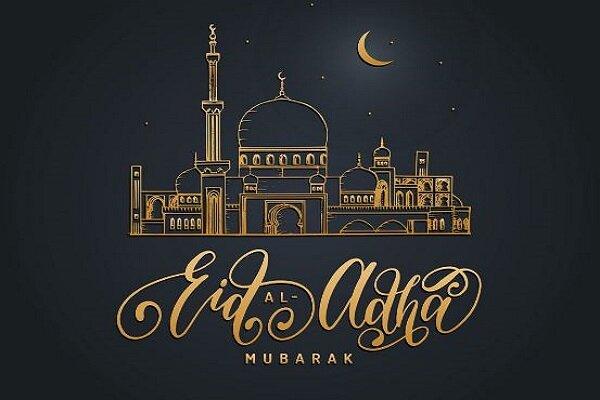Felicitations to Muslims on Eid al-Adha
Millions of Muslims across Iran celebrate Eid al-Adha, the second Eid festival of the year in the Islamic calendar.
The event is also known as the ‘Feast of the Sacrifice’, with the word ‘Adha’ in Arabic meaning ‘sacrifice’.
Based on Muslim belief, Eid al-Adha commemorates Prophet Abraham’s willingness to sacrifice his son, Isma’il, according to God's order. The satan tried to discourage Prophet Ibrahim by saying he should disobey God and let his son go. As Ibrahim was about to kill his son, God gave Prophet Abraham a sheep instead to slaughter.
The Christian Old Testament (Genesis 22) and Jewish Torah versions of the story say that Prophet Abraham was asked to kill Isaac, another one of his sons.
Just like other Islamic celebrations, Eid al-Adha is determined by a lunar calendar. The Eid coincides with the 10th day of Dhu al-Hijjah, the Month of the Pilgrimage, exactly when the closest new moon is seen.
Iran is holding the celebration for Eid al-Adha on July 31 this year. The occasion is a four- or five-day public holiday in most Islamic countries.
In Iran, the celebration begins with Muslims attending Eid prayers at local mosques and on unroofed grounds. Religious texts will be read all over the country.
Over the past years, congregational feast prayers have been carried out at Tehran University in the capital city. The venue is also used for other mass prayers in Tehran.
On Eid’s occasion, camels, sheep and other livestock are slaughtered and the meat is distributed in equal portions among the poor, family and friends as gifts. This is a sacrifice to show gratefulness for the blessings given by Allah. Anyone who is present in the slaughterings is required to donate to charity centers to hand those in need.
In Iran, families and friends also visit each other asking for forgiveness if they did something wrong to one another. Eid al-Adha is an opportunity for benefaction and charity, even if you are not planning a Hajj pilgrimage.
However, this year’s occasion is different as the coronavirus pandemic has been sweeping across the world countries, making it almost impossible for people to attend gatherings and ceremonies.
Going on Hajj pilgrimage
The Eid marks the highpoint of the Hajj pilgrimage event when the pilgrims carry out the final rituals of the event in Mecca. Going on Hajj is the last of five fundamentals of Islam, a Muslim must do during their life at least once. Every year, over two million Muslims go on Hajj, making the holy trip to Mecca.
This year's Hajj pilgrimage has also been affected by the coronavirus pandemic.
The holy city of Mecca, where more than two million believers usually converge for several days of rituals to retrace Prophet Mohammed’s last pilgrimage, will be open to no more than 10,000 people, with Muslims from abroad unable to attend the pilgrimage.
This year’s downsized Hajj will see only 60,000 fully vaccinated residents in Saudi Arabia take part in the five-day ritual.
This is a republished report
News source: Mehr News ![]()
Related news: Felicitations to Muslims on Eid al-Adha
Copyright © 2001-2024 - Sarkhat.com - About Sarkhat - News Archive - جدول لیگ برتر ایران

